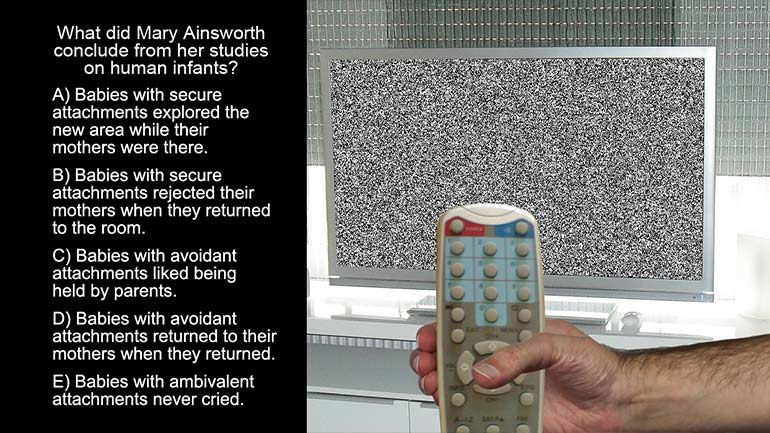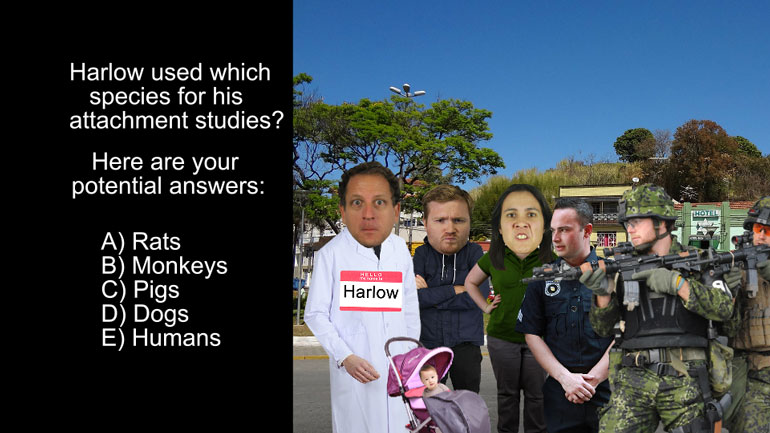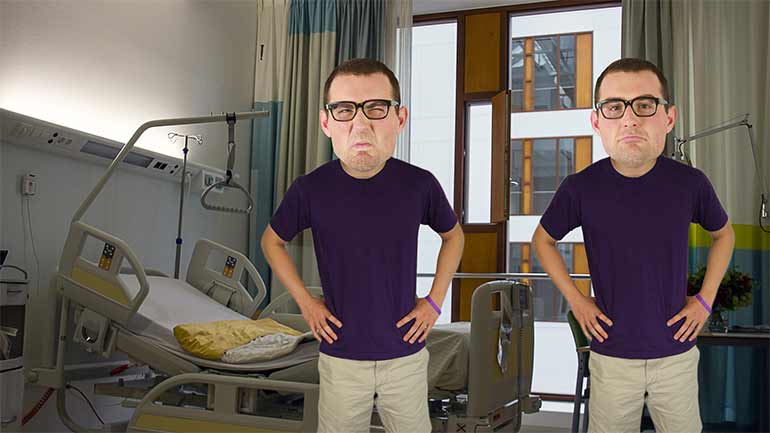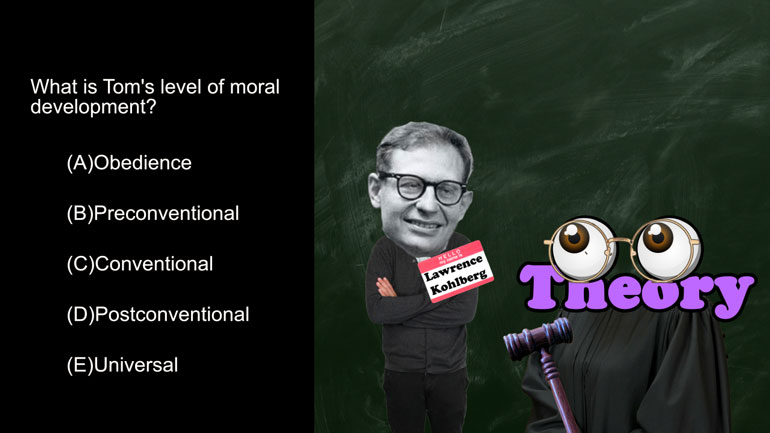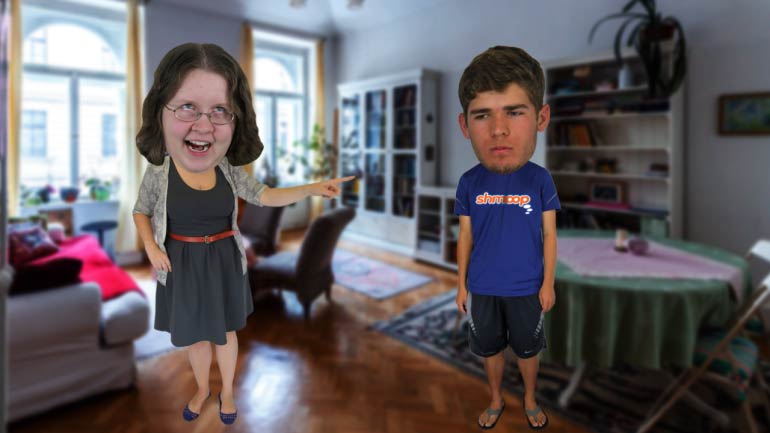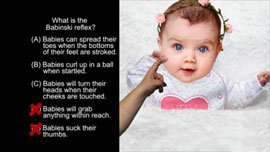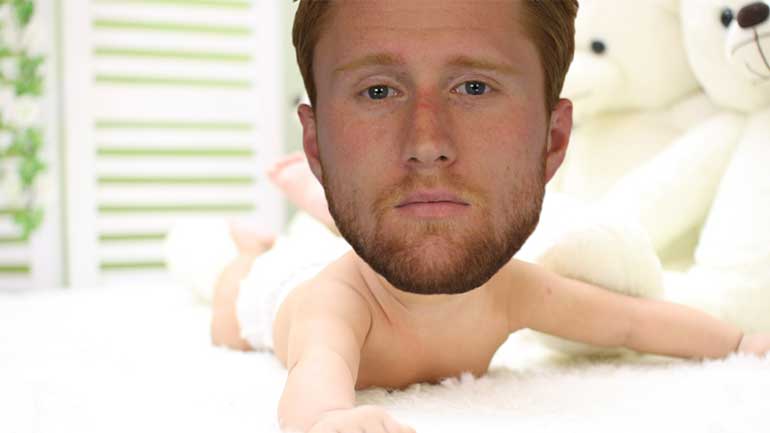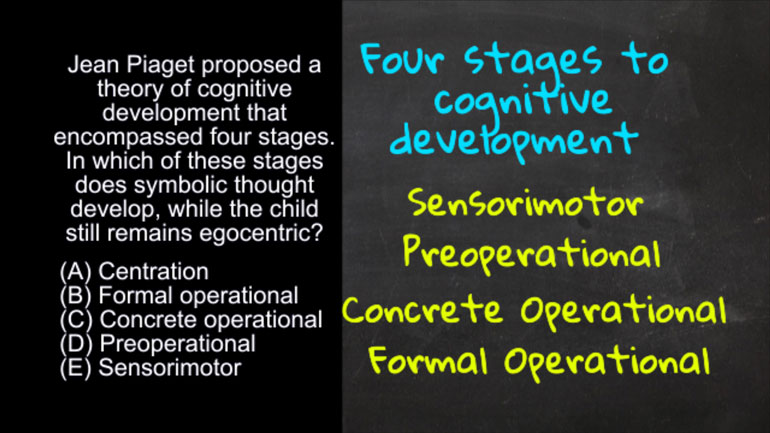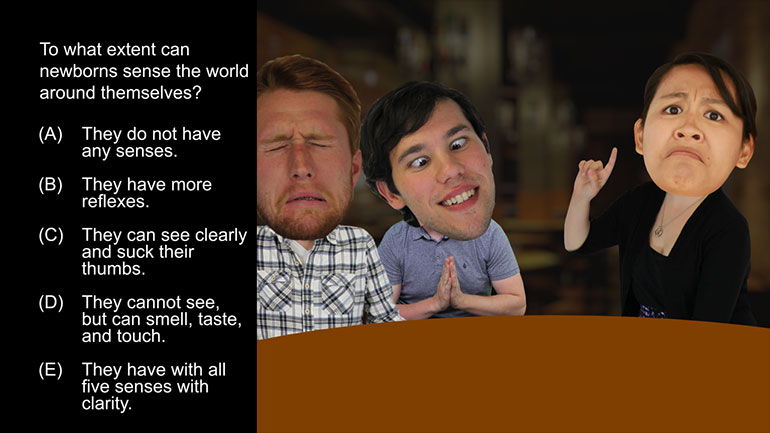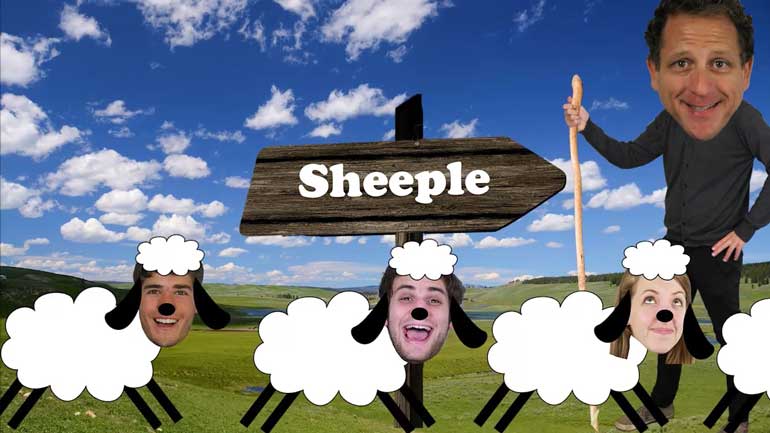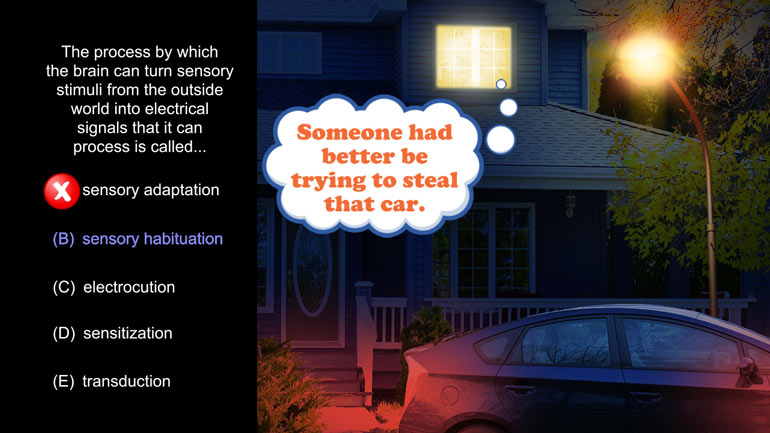ShmoopTube
Where Monty Python meets your 10th grade teacher.
Search Thousands of Shmoop Videos
Developmental Psychology Videos 14 videos
AP Psychology 2.3 Developmental Psychology. What did Mary Ainsworth conclude from her studies on human infants?
AP Psychology 3.4 Developmental Psychology. Which of the following labels best applies to Erik Erikson?
AP Psychology 2.2 Developmental Psychology. Harlow used which species for his attachment studies?
AP Psychology 1.1 Developmental Psychology 16 Views
Share It!
Description:
Some people can’t fart. "What does this have to do with developmental psychology?” you ask. Watch this video to find out.
Transcript
- 00:03
And here’s your Shmoop du jour, brought to you by Jean Piaget
, - 00:07
the Camille Pissarro of developmental psychology. [Photographs of both people]
- 00:10
Who’s Camille Pissarro?
- 00:12
He’s the Michael Jordan of Danish Neo-Impressionism. [Photo of Michael Jordan]
- 00:15
Who’s Michael Jordan?
Full Transcript
- 00:16
He’s the Jean Piaget of the NBA.
- 00:19
Full circle.
- 00:20
Here’s the question:
- 00:21
Jean Piaget proposed a theory of cognitive development that encompassed four stages.
- 00:26
In which of these stages does symbolic thought develop, while the child still remains egocentric? [Asks question]
- 00:31
And here are your potential answers…
- 00:36
Alright, let’s start out with the basics: who is this Jean Piaget and what are the stages
- 00:40
to his theory of cognitive development?
- 00:43
Jean Piaget, noted Swiss psychologist and beret enthusiast, was the first psychologist
- 00:48
to make a systematic study of cognitive development.
- 00:51
He concluded that children weren’t just dumber versions of adults- or less competent [Children playing]
- 00:56
thinkers, whatever, we’re paraphrasing- but that actually, their brains just thought
- 01:00
in much different ways than those of a fully developed mind.
- 01:05
Kind of like weird uncle Carl who likes eating glue. [Person eating glue]
- 01:08
Piaget proposed four stages to cognitive development: Sensorimotor, Preoperational, Concrete Operational,
- 01:17
and Formal Operational.
- 01:19
You can remember them in order by remembering the acronym: SPCF [Child reading]
- 01:23
Hmm…on second thought, maybe that’s not that helpful.
- 01:26
Let’s try it as a mnemonic....
- 01:27
Some. People. Can’t. Fart.
- 01:29
That's why they pay us the big bucks, people.
- 01:33
But enough farting around, let’s get to the stages:
- 01:36
Sensorimotor is the first stage, and deals with children before they hit the Terrible Twos. [Playing with ball]
- 01:41
Preoperational is the second stage, beginning when children start speaking, and lasting
- 01:46
until the age of about 7. [Child smiling]
- 01:47
Then comes Concrete Operational, which occurs during preadolescence, roughly the ages of
- 01:52
7-11; before, finally, we have… [Putting money into piggy bank]
- 01:55
Formal Operational, which covers adolescence into adulthood.
- 01:59
The crux of the question deals with an egocentric viewpoint, meaning that the child can’t
- 02:02
see the viewpoints of others. [Refusing to eat broccoli]
- 02:04
But to be fair, our parents still don’t see things from our perspective- especially
- 02:08
when it comes to trends that should never, ever, ever be repeated.
- 02:11
Seriously.
- 02:12
Bell-bottoms are dead and buried. [Holds up bell-bottom pants]
- 02:14
But they're at least aware that we…and people in general…have a point of view that’s
- 02:18
different from theirs..
- 02:20
Now looking back at our answers, we can probably eliminate Formal Operational, because we expect
- 02:23
people growing into adulthood not to be egocentric…
- 02:26
…Which apparently, is sometimes too much to ask.,,
- 02:29
We can also get rid of Sensorimotor, because a pre-talking baby isn’t really aware enough
- 02:34
to be egocentric yet, and it also hasn’t developed symbolic thought. [Baby opens mouth]
- 02:38
And we can eliminate Centration, because it isn’t even one of the four stages.
- 02:42
Oh, the AP test…always keeping us on our toes.
- 02:45
That leaves us with Preoperational and Concrete Operational, answers C and D.
- 02:50
So which is it? [Highlighed choices]
- 02:51
While Concrete Operational deals primarily with the development of reasoning and logic
- 02:55
in preadolescence, the Preoperational stage deals mostly with the Egocentrism we were
- 02:59
just discussing.
- 03:01
So the correct answer is D, Preoperational. [Correct answer circled]
- 03:05
Basically, Piaget says that in the Preoperational stage, children can generally only focus on
- 03:10
one thing, and that one thing is usually themselves. [Baby playing with ladle]
- 03:13
For example, when a group of children in this age group play in the same room, they are
- 03:17
normally playing next to each other, not playing with each other; and when they talk, they’re
- 03:21
talking to get out what’s in their brain, not to communicate.
- 03:24
So basically like that one person you never want to work with in a group project, but
- 03:28
someone always get paired with. [People in lab coats]
- 03:30
Man, we hate that guy…
Related Videos
AP Psychology 2.2 Social Psychology. Which of the following was an independent variable manipulated in Asch's research?
AP Psychology 1.1 Personality. According to Freud, these three parts of personality are constantly in conflict.
AP Psychology 1.1 Sensation and Perception. The process by which the brain can turn sensory stimuli from the outside world into electrical signals...
AP Psychology 1.1 Social Psychology. Which of the following best describes social psychology?
AP Psychology 1.1 States of Consciousness. Who conducted research on REM sleep deprivations?
